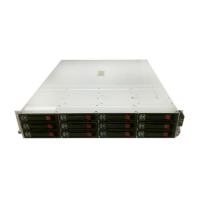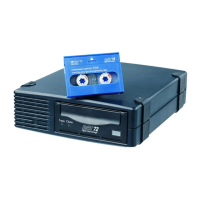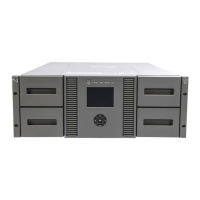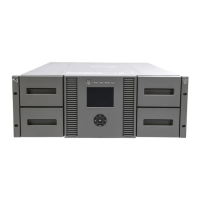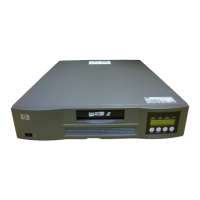130 Configuring MSA1000/1500 as external disk arrays
The following is a summary of the port setting status of the local disk array when you connect the MSA
external disk array.
Setting up the MSA
To set up the MSA for use as an external disk array connected to the XP12000/XP10000, perform the
following steps:
1. Define the MSA Array Object.
2. Define the MSA LU.
3. Use MSA Selective Storage Presentation to institute LUN security.
After defining the MSA array object, specify individual storage LUs within the array object. At this point,
institute LUN security on the MSA using the ACU Selective Storage Presentation (SSP) functionality.
Use the HP StorageWorks Array Configuration Utility (ACU) to configure the MSA for its role as an external
array. ACU runs from a server attached to the MSA via a Fibre Channel path.
The MSA Disk Array does not require any special firmware level or hardware additive to be usable by
External Storage XP as long as the firmware level in use supports the appropriate host mode setting (for
example, Windows or Tru64).
NOTE: Download the ACU and ACU Online User Guide from the following address:
http://h18004.www1.hp.com/products/servers/proliantstorage/software-management/acumatrix/inde
x.html
Defining MSA array objects
Use the Array Configuration Utility (ACU) to define at least one internal MSA array object (for instance,
“A”) when first setting up the array. After defining an array object, specify LUs within that array object.
Figure 65 Defining MSA array objects with the ACU
Calculating MSA LU size and defining LUs
The ACU used for configuring the MSA uses an optimization algorithm to calculate the user size of a new
LU given a user-specified size in MB (Figure 66). Because you cannot bypass or disable the optimization
algorithm, you must compensate for this optimization so that MSA LUs are created at the correct size.
When requesting a new LU through the ACU, make the request 2 to 3 MB larger than needed for
Topology Fabric ON Fabric OFF
Loop Supported Supported
Point-to-Point Supported Not supported
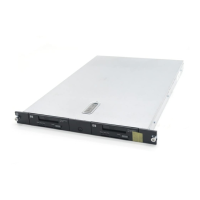
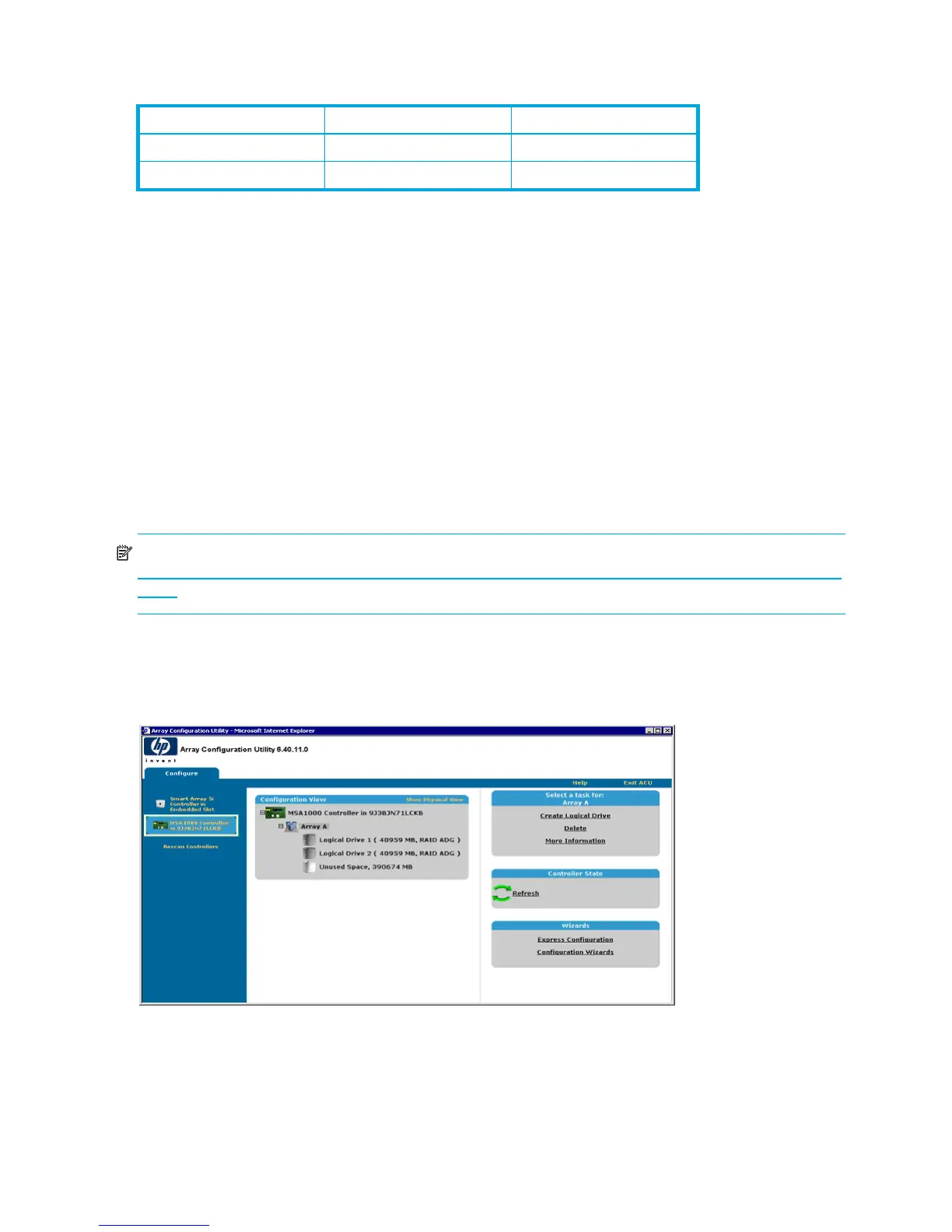